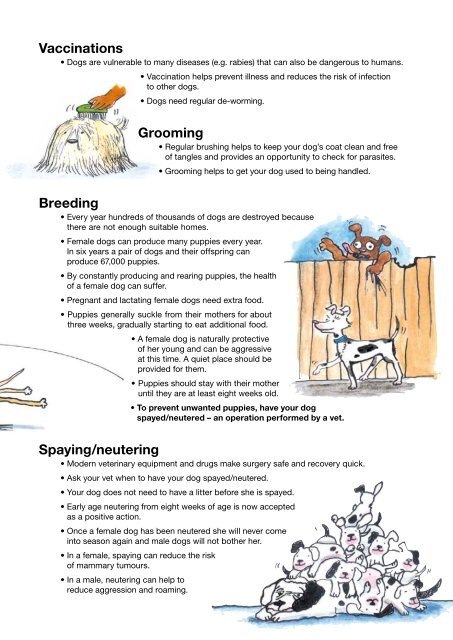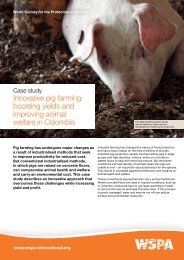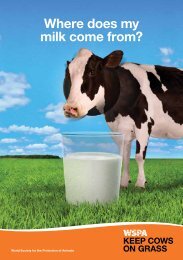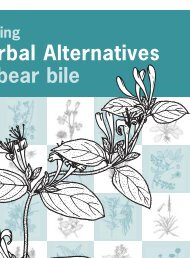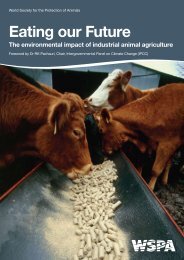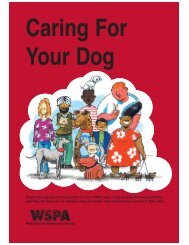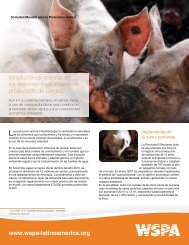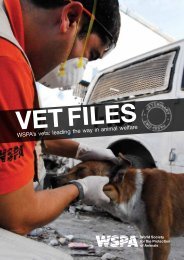Caring for Your Dog - WSPA
Caring for Your Dog - WSPA
Caring for Your Dog - WSPA
- No tags were found...
Create successful ePaper yourself
Turn your PDF publications into a flip-book with our unique Google optimized e-Paper software.
Vaccinations<br />
• <strong>Dog</strong>s are vulnerable to many diseases (e.g. rabies) that can also be dangerous to humans.<br />
• Vaccination helps prevent illness and reduces the risk of infection<br />
to other dogs.<br />
• <strong>Dog</strong>s need regular de-worming.<br />
Grooming<br />
• Regular brushing helps to keep your dog’s coat clean and free<br />
of tangles and provides an opportunity to check <strong>for</strong> parasites.<br />
• Grooming helps to get your dog used to being handled.<br />
Breeding<br />
• Every year hundreds of thousands of dogs are destroyed because<br />
there are not enough suitable homes.<br />
• Female dogs can produce many puppies every year.<br />
In six years a pair of dogs and their offspring can<br />
produce 67,000 puppies.<br />
• By constantly producing and rearing puppies, the health<br />
of a female dog can suffer.<br />
• Pregnant and lactating female dogs need extra food.<br />
• Puppies generally suckle from their mothers <strong>for</strong> about<br />
three weeks, gradually starting to eat additional food.<br />
• A female dog is naturally protective<br />
of her young and can be aggressive<br />
at this time. A quiet place should be<br />
provided <strong>for</strong> them.<br />
• Puppies should stay with their mother<br />
until they are at least eight weeks old.<br />
• To prevent unwanted puppies, have your dog<br />
spayed/neutered – an operation per<strong>for</strong>med by a vet.<br />
Spaying/neutering<br />
• Modern veterinary equipment and drugs make surgery safe and recovery quick.<br />
• Ask your vet when to have your dog spayed/neutered.<br />
• <strong>Your</strong> dog does not need to have a litter be<strong>for</strong>e she is spayed.<br />
• Early age neutering from eight weeks of age is now accepted<br />
as a positive action.<br />
• Once a female dog has been neutered she will never come<br />
into season again and male dogs will not bother her.<br />
• In a female, spaying can reduce the risk<br />
of mammary tumours.<br />
• In a male, neutering can help to<br />
reduce aggression and roaming.


